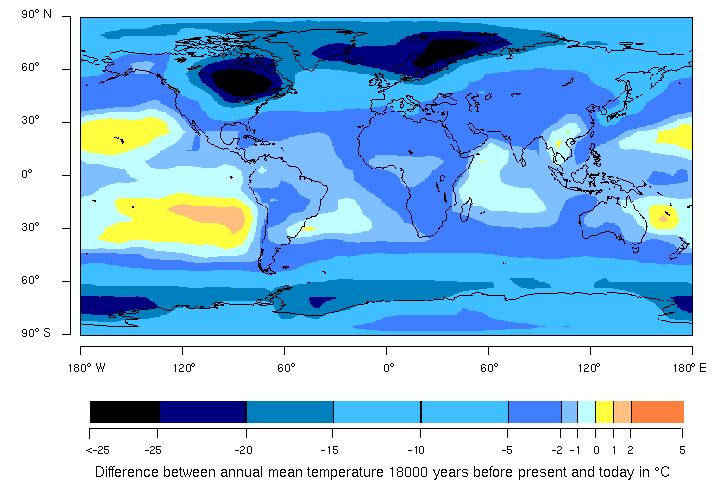Let me state upfront, I'm not arguing the existence of climate change, just trying to clarify my own understanding of something that doesn't make sense to me yet. With apologies for the layman's question...
I've seen similar numbers frequently, but let's use this xkcd as a reference. It states that a 4.5 C change in the global climate is the difference between Boston under a half mile of ice, and the temperate zone it is today. Boston's current annual average temp is 10.75 (~15 average high, ~7 average low). Looking for an analog for a city that's about 4.5 C cooler than Boston gives a location like Moncton, New Brunswick. Colder, yes, but not buried under half a mile of ice.
My brain says that a place covered by ice is far colder than current temps minus 4.5 C, and that since the ice sheets covered so much of the earth, I can safely skirt the "climate is global, you're looking at local temps" hangup. So what gives? How can a climate like Boston's cool by "only" 4.5 C and support such enormous glaciers? It would seem that the presence of such enormous ice sheets would imply that the average temperature must have been far colder than that...
